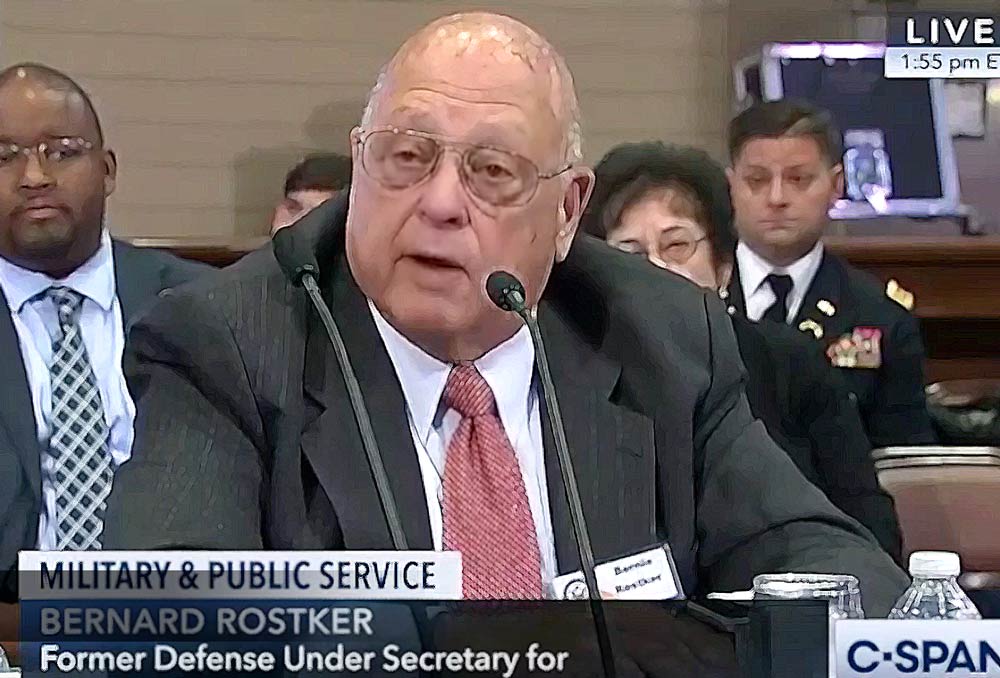“So, my bottom line is there is no need to continue to register people for a draft that will not come; no need to fight the battle over registering women, and no military need to retain the MSSA.”
The MSSA is the Military Selective Service Act. It authorizes the Selective Service System (SSS) to register young men for a possible draft and, should conscription resume, manage that process. The law allows the government to imprison those who do not register.* I know, I violated the Act 38 years ago by refusing to sign my name on a draft registration form.
But the quoted statement, above, wasn’t mine. No sirree. That was testimony from Dr. Bernard Rostker, the director of Selective Service back in 1980, when President Carter re-instituted mandatory registration.
Rostker made two cogent points at yesterday’s National Commission on Military, National, and Public Service hearing:
- First, the modern military neither needs nor wants a massive manpower infusion, which would only dilute the quality of the All-Volunteer Force.
- Second, the list of young men registered with SSS is woefully inadequate, “systematically lack[ing] large segments of the eligible male population and for those that are included, the currency of information contained is questionable.”
Come some future emergency, the former director contends that a draft could be instituted just as quickly without this ongoing registration program. Sure, but that misses the bigger picture: This country has never needed conscription to raise an army. Americans — from Pearl Harbor to 911 — have always stepped up voluntarily.
Mr. Rostker advises “suspending draft registration.”
He took the words right out of my mouth — though I prefer “abolish.”
This is Common Sense. I’m Paul Jacob.
* The maximum penalty is five years in prison and a $250,000 fine, but no one has been prosecuted for decades. Most of the enforcement effort comes in denying driver’s licenses, college loans and government jobs to men who don’t register. Commission Chairman Joe Heck explained at yesterday’s hearing that 75 percent of registrants do so in order to complete a license or college application.

—
See all recent commentary
(simplified and organized)

